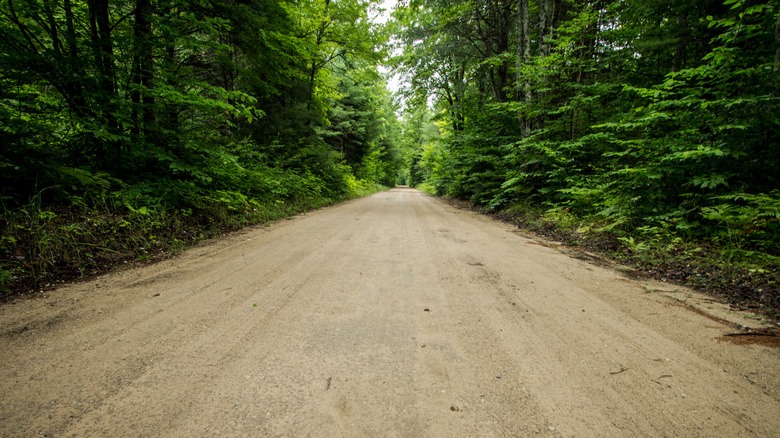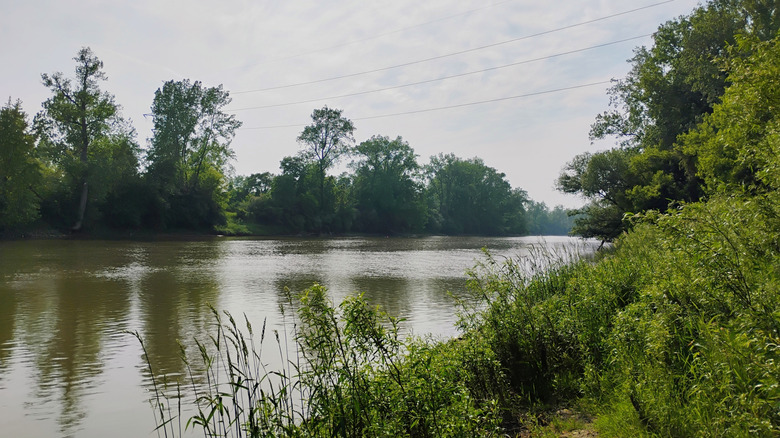Why Michigan Dirt Roads Are Sprayed With Brine In The Summer
For anyone who's not familiar with them, driving on gravel or dirt roads can be a stressful experience, as they have the least traction of any common road surface. During the warmer months, these unpaved roads also suffer from high levels of dust generation, which can leave drivers unable to see clearly and cause pollution to the surrounding area. To limit the dust, Michigan has been spraying its unpaved roads with brine over summer for decades now. The brine helps reduce dust in two ways: firstly, it adds moisture to the road surface, and while the road is moist, dust cannot form. Secondly, the brine contains several hygroscopic compounds — meaning they attract and then absorb moisture — to keep the road's surface from fully drying out.
The key hygroscopic compounds are sodium chloride — commonly known as table salt — and calcium chloride. As a side effect of their dust-preventing abilities, the compounds also help keep the road surface in better condition, as less of the surface is churned up and dispersed as vehicles drive over it. While it's most commonly used over summer, brine is also used on the state's roads in winter, as it helps prevent the buildup of ice.
Brine can be cheaply sourced from local oil drilling operations, as it's a natural byproduct of the drilling process. However, concerns have repeatedly been raised about the environmental impact of brine spraying, and there is plenty of evidence to suggest it is having a significant impact on Michigan's waterways.
The issues with road brining
Just as vehicle tires can emit harmful pollution, the road surface that those tires drive on can have a major impact on local pollution levels. Road salt has been identified as a key factor behind increased chloride levels in northern U.S. rivers and streams, and Michigan has proposed reforming its road brining program to limit the amount of salt that makes its way into the state's waterways. However, the plan has been met with resistance both from road authorities and from some Michiganders who argue that brining is necessary to keep the roads in usable condition all year round.
Dust particles from the road can also have an adverse impact on human health, as well as being a major inconvenience for people living by an unpaved road. Finding the right balance between keeping the roads safe and limiting the environmental impact of salty brine is an ongoing challenge with no straightforward solution. Even if using brine or road salt is a terrible idea for the environment, there simply isn't a better alternative to using it for now.

